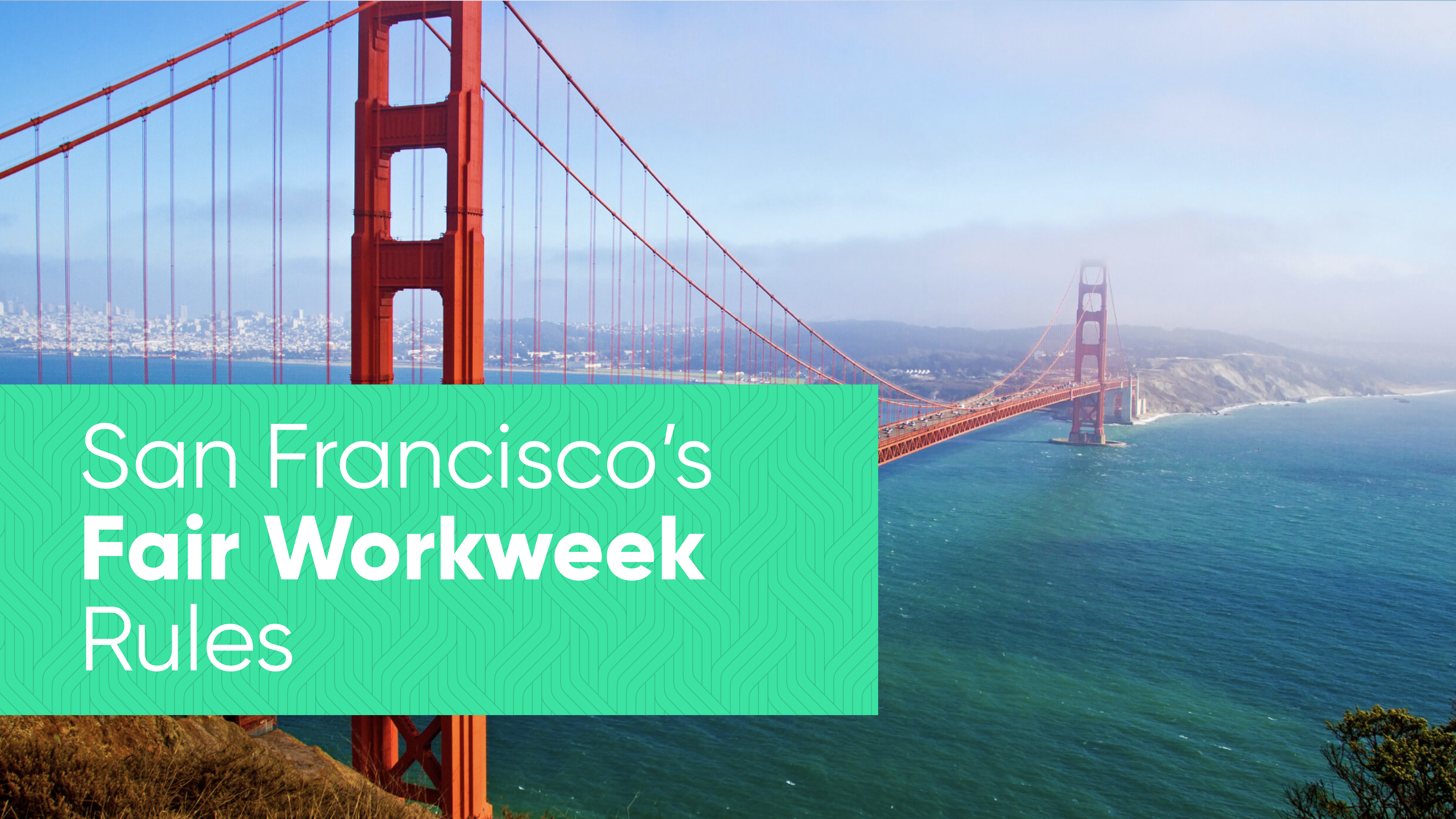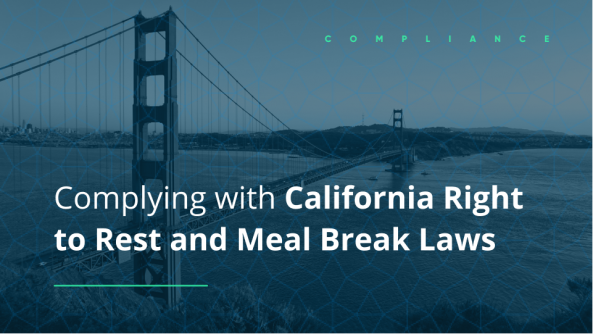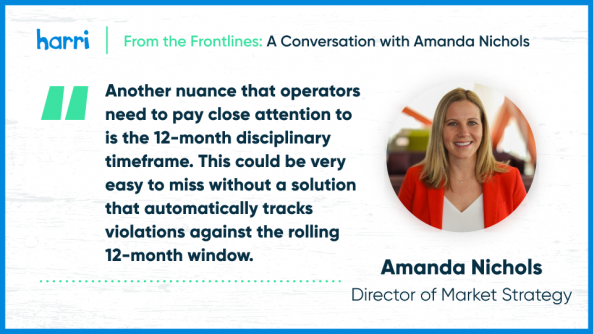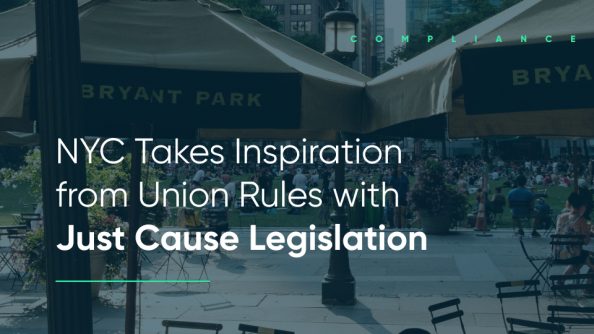Explained: San Francisco Fair Workweek Regulations

- By Harri Insider Team | October 4, 2019
San Francisco Fair Workweek labor laws are in effect. These ‘predictive scheduling’ laws aim to promote flexibility for shift workers and protect against unfair scheduling practices.
The rules are complex and fines for violations are heavy
In San Francisco, the law applies to ‘Formula Retail Establishments’ – chains with more than 40 outlets worldwide, including bars, restaurants, and take-out shops, and more than 20 employees in the city. Among other headaches, shifts must be planned two weeks in advance and records must be immaculate to avoid costly fines.
Amongst other labor-related complexities faced in California, a Bay Area Thai establishment was ordered to pay over $170,000 after an investigation found it was paying employees a flat rate of daily or weekly pay, and not taking into account overtime hours.
The fact these regulations vary significantly state-by-state makes it all the more difficult for restaurant groups who operate across multiple cities.
Many operators have put dedicated finance teams in place to identify violations and deal with penalties to ensure compliance. But this approach deals with the symptoms of the problem rather than the cause.
What is needed is a holistic solution that tackles the root cause while also mitigating risks throughout the business, enabling all departments to consistently and proactively work together.
Giving managers the power to use predictive scheduling effectively, minimizes violations and pushes any violation data straight to payroll to be dealt with in accordance with the law.
The result is greater efficiency and less stress for managers, more flexibility and protection for employees, and better results for the business – not only in terms of happy workers but in costs saved and embarrassment avoided.
Let’s take a look at the regulations for San Francisco and then how Harri’s system solves the many problems they pose to employers in the city.
Regulations for San Francisco Fair Workweek
Here’s an overview of the main regulations and related penalties restaurant and ‘Formula Retail Establishments’ in SF should be aware of.
Good Faith Estimate
On or before their first day, employers must provide new employees with:
- The expected minimum number of scheduled shifts per month.
- The days and hours of those shifts.
This does not need to include on-call shifts.
Advanced Notice on Scheduling
Schedules must be provided at least two weeks in advance and must include on-call shifts.
If changes are made with less than seven days’ notice, employees must be paid a premium of one to four hours of pay at the regular hourly rate.
Predictability pay for additional hours:
- Less than seven days’ but more than 24 hours’ notice: pay one hour
- Less than 24 hours’ notice:
- Length change of four or fewer hours: pay two hours.
- Length change of more than four hours: pay four hours.
On-call Protection
If they are not called in, the employee must be paid a premium of two to four hours pay at their regular rate.
Exceptions
Employers do not have to provide predictability pay or payment for on-call shifts if any of the following conditions apply:
- Operations cannot begin or continue due to: threats to employees or property, failure of public utilities, an Act of God or other cause not within the employer’s control (such as an earthquake).
- Another employee previously scheduled to work that shift is unable to work and did not provide at least seven days’ notice.
- Another employee failed to report to work or was sent home.
- The employer requires the employee to work overtime.
- The employee trades shifts with another employee or requests a change in shifts.
Access to hours for existing employees
The employer must first offer the additional work to existing part-time employees if:
- The part-time employee is qualified to do the additional work, as reasonably determined by the employer; and
- The additional work is the same or similar to work the employee has performed for the employer.
Harri’s Answer to Fair Workweek Complexities
Harri’s intelligent scheduling system automatically keeps operators up-to-date with regulations, even across multiple jurisdictions. It helps you not only to actively comply with regulations, but also to use predictive scheduling to improve your business.
Here’s a rundown of the main features.
Good Faith Scheduling Support
The system includes the following features to make employees aware of the Good Faith Schedule during onboarding:
- The automatically generated Good Faith Estimate document provides new hires with a clear schedule in accordance with the local laws.
- This is seamlessly integrated into the onboarding process for review and e-signature by the new hire.
Direct Shift Swaps
Harri’s Hot Fill system allows employees to exchange shifts directly without employer involvement. The peer-to-peer shift exchange does not violate the above rules on shift swaps based on pay rate and overtime thereby avoiding late-change penalties.
Hot Fill – “Uber for your employees”
Here’s how it works:
- An employee is unable to attend work and they release the shift.
- Other employees have indicated they wish to work on that day if a shift becomes available (note, they are not “on-call”).
- The system alerts these employees via SMS and push notification.
- The first employee to accept gets the shift.
- The manager on duty is notified of the employee’s ETA and distance from work.
This system offers more flexibility for employees and makes it far easier for managers to oversee a shift swap, all while avoiding costly late-change penalties.
Calculation of Right to Rest Compensation Payment
The Right to Rest regulation ensures employees adequate rest between shifts. Harri helps managers to comply by alerting them if this rule is violated when the schedule is created, or any time after it is created, so they can proactively make changes to the schedule.
Manager Alert for Penalties Related to Schedule Changes
Managers have the ability to define compensation rules for changes after the advance notice period. Shift change premium pay is indicated on the schedule itself and included in the total wage cost calculations.
This means managers are fully aware of the cost impact of schedule changes before they put them in place so they are able to plan and make strategic decisions accordingly. It also makes it easy for the finance department to calculate the costs and pay the right amount to the employee.
Predictive Scheduling Premium Reporting
This feature provides managers with reports indicating, in detail, all the premium payments resulting from schedule changes. These can then be passed seamlessly to the finance department where they can be processed.
They can also be analyzed and scrutinized by management so that key decisions can be made on the company-wide scheduling policy to avoid future fines.
Make Sure Your Business is Protected
The best way to ensure compliance, at scale and across states and cities, is to use a holistic system designed for the purpose.
Harri’s smart scheduling tools simplify every stage of the process, dealing with the cause of the problem in order to minimize violations and streamline communication between departments, managers, and employees.
To see how you can use the system to protect your business and lead a happy, better-rested team, get started with Harri’s smart scheduling tools.
Learn more about Fair Workweek regulations in New York City and Chicago.




















